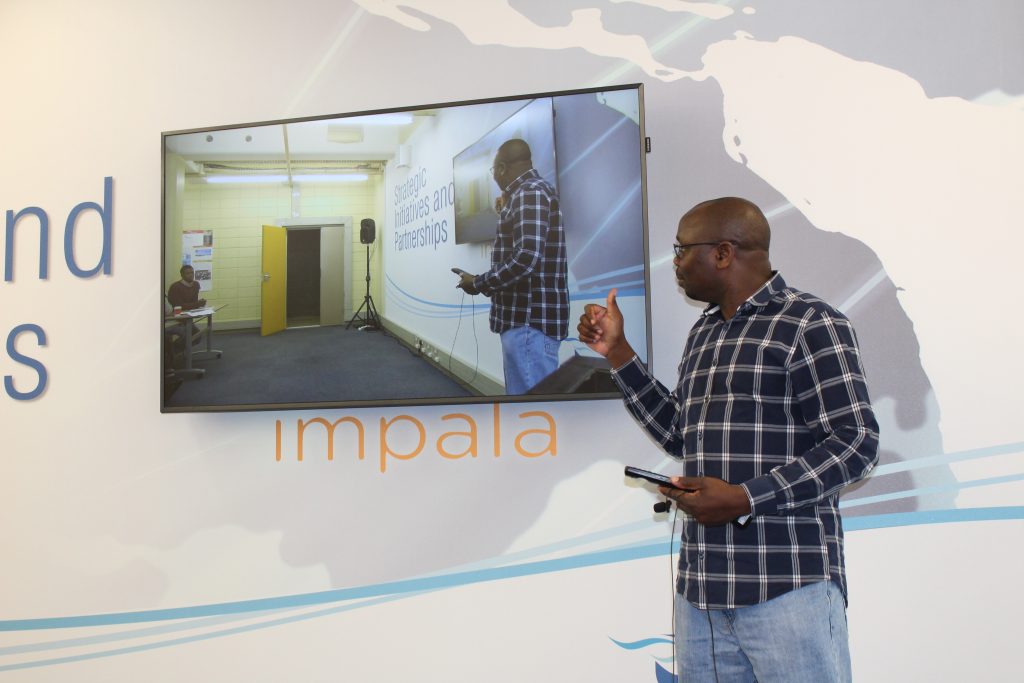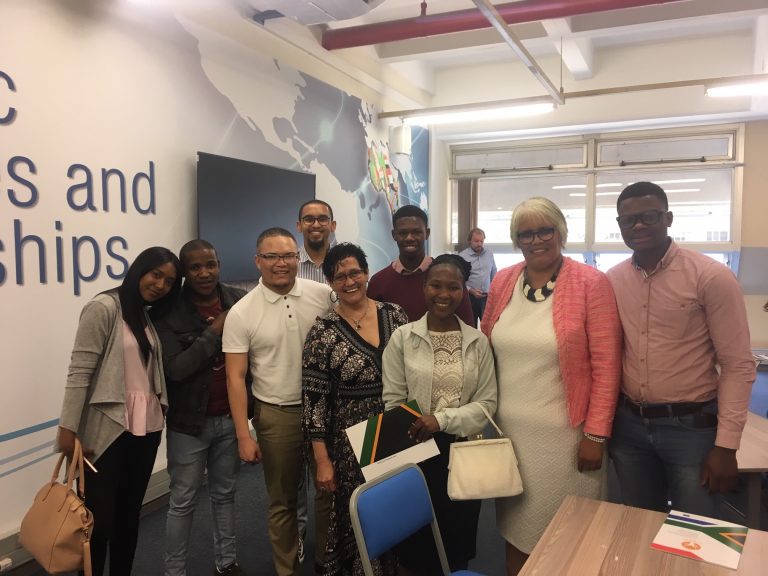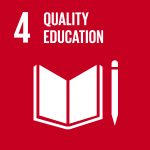Esta web utiliza cookies para que podamos ofrecerte la mejor experiencia de usuario posible. La información de las cookies se almacena en tu navegador y realiza funciones tales como reconocerte cuando vuelves a nuestra web o ayudar a nuestro equipo a comprender qué secciones de la web encuentras más interesantes y útiles.
Collaborative online international learning (COIL) as a timely equity-sensitive strategy of higher education internationalisation@home in post-pandemic times
Description
Institution
Cape Peninsula University of Technology (CPUT)

Organizations/areas of the university involved
cross-/intra-institutional, international partners
Country
South Africa
Link to learn more...
Collaborative online international learning (COIL) as a timely equity-sensitive strategy of higher education internationalisation@home in post-pandemic times: a case study from the Cape Peninsula University of Technology, South Africa.
Declining budgets, human capital, and international student enrolment is one dimension of the post-pandemic terrain in higher education. The second dimension is the resounding success of agile leadership, emergency online learning and collaborative online international learning initiatives and the impact of throughput rates. This process of reimagining higher education extends to an increase in access to collaborative opportunities in research and staff and students exchanges between strategic foci such as North- South collaborations.
In the end of 2018, the Cape Peninsula University of Technology (CPUT)’s collaborative international online learning (COIL) facility was opened on one of the university’s six campuses (District Six- Cape Town city centre). It must be pointed out that COIL goes well beyond infrastructure in as much as it actually creates a new mind-set of expanded and solutions-oriented learning. Accordingly, it prepares students for collaborative and project-based learning with an interdisciplinary focus, which goes along with the 4IR, in order to deal with and act in an increasingly complex and globalised environment. To sum up, the CPUT COIL project is an excellent example of an activity within “internationalisation@home”, which becomes ever more important in 2021 where the pandemic continues to impact higher education institutions worldwide. Faculty member Jon Rubin, who developed the concept, characterises it as “a way to connect the students in your classroom to the world.” In brief, it provides for ‘virtual mobility’ experiences that are incorporated into the formal curriculum. By means of engaging staff and students in “broadening their worldview and perceptions” while bringing together expertise and experience from the different partners in Europe and South Africa, the initiative contributes to advance internationalisation in higher education. After the current process of institutional roll-out across the faculties and units, the initiative will be upscaled to other institutions in the region and prospectively beyond (see transferability section below).
Results and impact measured or expected
100 students and four lecturers in Education have been reached as of today in the framework of the partnership between CPUT in South Africa and the University College of Leuven-Limburg in the Netherlands. Among others, an example testifying success is use by CPUT final-year Sports Management undergraduate students and their counterparts at the School of Marketing and Management at Coventry University in the UK. Collaboratively and remotely, the students designed a sport marketing campaign in the form of a series of outdoor fitness events – which was started in Cape Town, and is now being exported to England. In participating students’ words, it enabled them to “gain insights into a different cultural perspective which I may not have even considered if the COIL project hadn’t taken place”, and, overall, “This is a wonderful collaboration and initiative from the side of CPUT. The COIL project provides a great platform for students”.

Tags
Connection with the SDG framework
The initiative addresses both SDG 4, Quality Education – with a particular focus on higher education – and SDG 17, partnerships. 4IR and online learning in its multiple modality roll out-is embedded in the politics of the have and have nots – therefore, cultural and economic inequalities should ideally underpin 4IR interventions and hybrid plans of face to face and virtual teaching and learning in a post-pandemic world. New reality/normal/landscape – accelerated global pedagogical teaching methodologies, global/ cross border/ transnational/real-time transnational platforms – collaborations are new opportunities to address issues of access and inequalities, and ideologies to address SDGs and 2030 goals.
Barriers and follow up
The necessary infrastructure, namely, videoconferencing equipment as an integral part of embracing and introducing new teaching and learning technologies, was funded by a concurrent project, IMPALA (Internationalization and Modernization programme for academics, Leaders and administrators). This proved all the more crucial in times of declining higher education overall and institution-specific budgets and is proof of an integrated strategy.
Transferability of the initiative
By looking at an existing opportunity, the COIL strategy with its associated state-of-the art infrastructure, the foundations have been laid for an adaptation process in the post-Covid world. It may serve as an example to be upscaled by other institutions in South Africa, the region and beyond. The project example presented is embedded in the institution’s Strategic Plan 2021-2030, ONE SMART CPUT, across its seven focus areas. In a nutshell, it incorporates human-centricity and technology-enablement for relevant and excellent higher education provision, aligned with the imperatives of the 4th Industrial Revolution (4IR). Likewise, it transforms pedagogy and modes of delivery.
Education 4 SDG funciona gracias a WordPress

